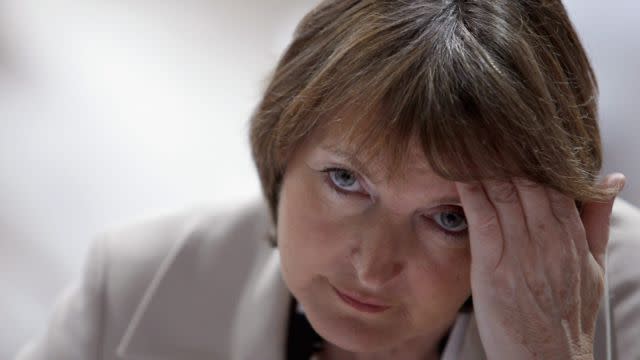Old white men could mansplain the UK out of Europe

Women in the UK, or at least those who want the country to remain a member of the European Union, are worried.
The public discourse on whether or not to exit the EU, which will be decided via a public referendum next month, is being heavily dominated by men, who may be campaigning harder and are certainly being given much more airtime than women, according to data from the University of Loughborough:

Researchers studied print and TV media over a 10-day period in May. As well as the skew in numbers of commentators featured in debate, the ten most-seen campaigners were all men. Boris Johnson, former mayor of London and a campaigner for Brexit, was the most ubiquitous. Those 10 men were all over age 45.
As the FT noted, there’s a danger the referendum is becoming “a giant exercise in “mansplaining”.”
But men, and especially older men, are more likely to be in favor of leaving the EU than women; and women are more likely to be undecided. A survey of polls by the London School of Economics found that up to 25% of women were unsure which way to vote, compared to up to 15% of men (though they also note that men are more likely to express certainty when asked poll questions).
Women with an opinion are slightly more likely to vote to remain in the EU than are men, according to data from YouGov.

Older people, meanwhile, are the most staunch campaigners for ‘Brexit’ (in fact, the age of 41 is the tipping point):

The lack of equity in the campaign, especially as a function of decisions made by the media, has caused an outcry. Harriet Harman, a Labour MP and former interim leader of the party, wrote to a media watchdog to point out the problem.
“Half the population of this country are women and our membership of the EU is important to women’s lives. Yet men are—as usual—pushing women out,” she wrote.
In fact, more than half the population is female. There are a million more women in the UK, a function of women’s longer life expectancy, the LSE notes. That could make their vote decisive.

Sign up for the Quartz Daily Brief, our free daily newsletter with the world’s most important and interesting news.
More stories from Quartz:

 Yahoo Finance
Yahoo Finance 